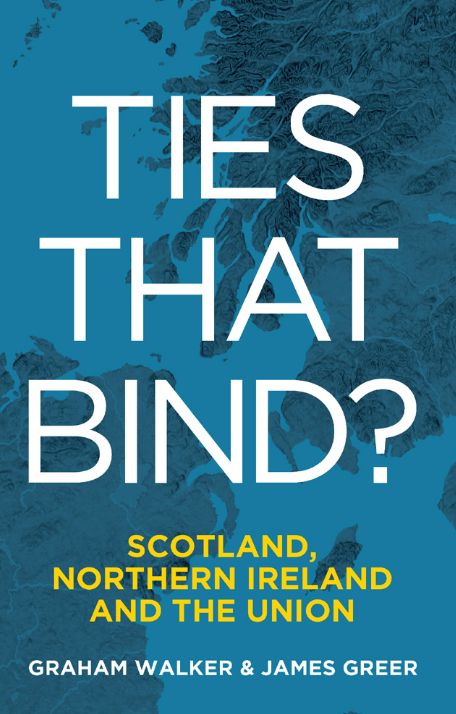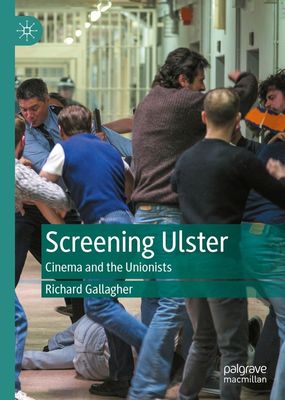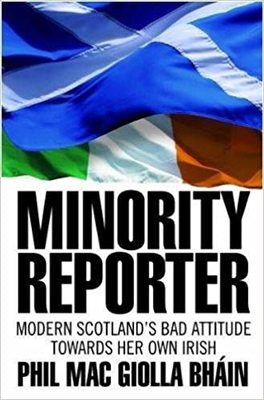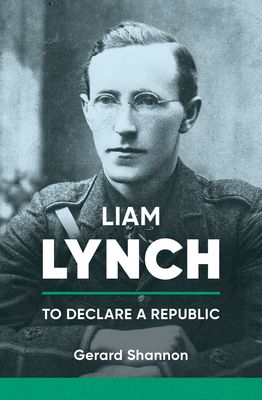Ties That Bind? Scotland, Northern Ireland and the Union, by Graham Walker and James Greer (Irish Academic Press, £17.99)
ENGLISH imperialism has had a remarkable run. Initially by force of arms and then by force of its will, it managed to subjugate half the world. In so doing, a tiny country on a small island transformed itself into a Great Power.
Its earliest major conquests were its immediate neighbours: Wales, Scotland and Ireland. These nations, with their own languages and cultures, were gradually, and violently, incorporated into an entity the English parliament came to regard as “Great Britain”.
One major challenge to England’s hegemony over its nearest and not-so-dearest was the courageous decision by the Irish people to take up arms in 1916. England did its best (and, most definitely, its worst) to frustrate Ireland’s subsequent bid for independence, just as it did when confronted by later rebellions elsewhere in its global empire.
As we know to our cost, England’s desperation to maintain a presence in Ireland culminated in a cynical act of partition and the establishment of an inherently unstable quasi state. Thus was born, in 1927, the United Kingdom of Great Britain and Northern Ireland.
From its inception, the “united” bit of that title was little more than a polite fiction. Irish aspirations to reunite the country were always apparent and have become increasingly clear since the electoral success of Sinn Féin on both sides of the border. Scottish ambitions to break the link with England, though less obviously expressed for a long period, emerged with the rise to prominence of the Scottish National Party (SNP) and the narrow loss of the independence referendum it engineered in 2014.
So, taking that recent history on board and their belief that we have reached a seminal moment in the state of affairs of both the Six Counties (a term they never use) and Scotland, the authors of this book register their disquiet about the future of the Union. Hence, of course, the question mark in their title.
If peace, whether short or long-term, was the aim, then the Plantation of Ulster must rank as one of the least prescient political acts in the tragic and blood-soaked history of world-wide colonisations. Conflict was baked into the process.
They begin by charting the links between the Ulster counties and Scotland where, over centuries, people sailed to and fro between them. These were largely uncontroversial movements until the English-based government decided, at the beginning of the seventeenth century, the best way to pacify the rebellious Irish inhabitants was to dispossess them of their land and hand it to Scottish (and some English) settlers.
If peace, whether short or long-term, was the aim, then the Plantation of Ulster must rank as one of the least prescient political acts in the tragic and blood-soaked history of world-wide colonisations. Conflict was baked into the process.
Despite individual acts of assimilation, differences in religious persuasion held firm. The otherness of the incomers was reinforced on each side, by the settlers’ refusal to build a cultural connection with the people they displaced and by the indigenous population’s refusal to accept the second classness of their position in society.
Perfidious Albion was content to play each side off against the other, just as long as their disputes did not intrude into England’s domestic affairs. The fact that they needed to do so on a regular basis down the years was proof positive of the colonisation strategy’s fallacy.
In order to shore up the planted people and their belligerent descendants, England granted them a one-party state, a gerrymandered parliament and therefore complete autonomy to do as they liked. And what they liked was the exercise of unaccountable power to bolster their bigotry.
Graham Walker and James Greer, being academics, prefer understatement and euphemism when discussing that historical reality. So, they choose to call Northern Ireland “a constitutional anomaly” and even a “devolution experiment” which Westminster, in allowing the Protestant majoritarian government to do as it wished, was “tarnished by discriminatory practices against the Catholic and nationalist minority.”
The authors’ political partiality – at one point they refer to the “spectre” of Sinn Féin’s surge in popularity – should not blind us to their book’s strength in analysing the strong historical, cultural and political connections between the north and Scotland. They are surely right to see how the campaigns for Irish reunification and for Scottish independence are mutually reinforcing and, at the same time, destabilising for the Union.
So it was an “experiment”, was it? If so, how lucky that the minority, in seeking their civil rights, sought to smash the test tube in 1968. And luckier still that when the army arrived to force the people back into the laboratory, they resisted until another devolution experiment, known as power-sharing, was introduced.
The authors’ political partiality – at one point they refer to the “spectre” of Sinn Féin’s surge in popularity – should not blind us to their book’s strength in analysing the strong historical, cultural and political connections between the north and Scotland. They are surely right to see how the campaigns for Irish reunification and for Scottish independence are mutually reinforcing and, at the same time, destabilising for the Union.
They argue, backed by plenty of evidence, that Scottish politics has been “Ulsterised” following the rise of the SNP. Scotland’s previous class-based political split has been replaced by one of identity. The descriptive terms, Unionists and Nationalists, have become as common in Glasgow as they are in Belfast.
Moreover, the assertion by the outgoing First Minister, Nicola Sturgeon, that the next UK general election should be cast in Scotland as a referendum on independence placed her alongside Michelle O’Neill in the sense that both see voting volumes as a pointer to people’s genuine desires.
The authors also see a similarity between religious sectarianism in the Six Counties and its corollary in Scotland. However, they appear to dismiss the notion that, in the Scottish context, what is called sectarianism should more properly be regarded as a manifestation of anti-Irish Catholic racism.
Whether one or the other (and I happen to think the racism argument is compelling) this divide is unlikely to be crucial should the post-Sturgeon SNP pursue a second referendum. What will count, regardless of religious faith, is the wider attitude towards the existence of an English dominated “Britain”.
As the authors indicate throughout the five essays that comprise their book, the Union is up for grabs as never before. Its collapse is not, of course, inevitable because Unionism retains, in both entities, a strong hold. But the bonds have undoubtedly loosened, and England must recognise that it now rules over a Disunited Kingdom.






